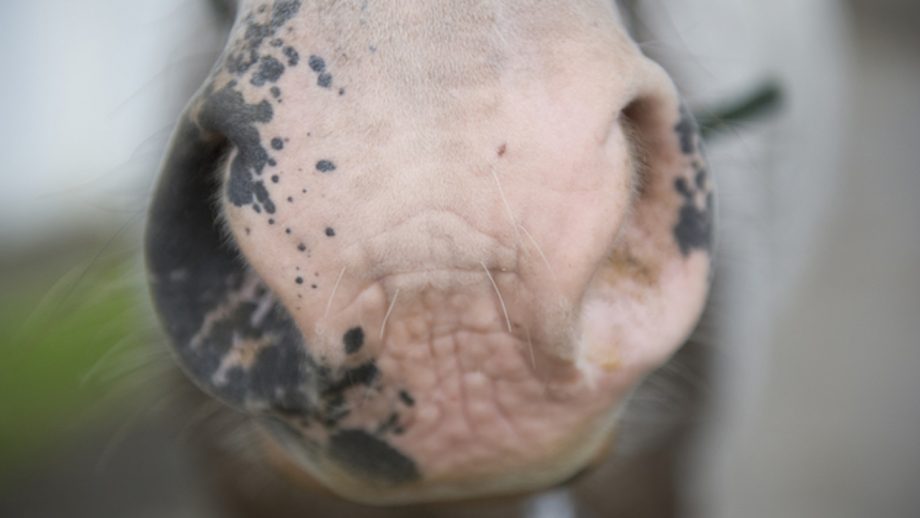Stricter minimum eligibility requirements will apply from next year, as one of the rule changes voted through at the 2020 FEI general assembly. H&H finds out more about this and other changes
TOUGHER qualifications for eventers are among new rules due to come into force for FEI events in 2021
The rules, as well as the forthcomign whisker-trimming ban, are among changes voted through at the FEI general assembly, on 23 November.
{"content":"PHA+4oCcTGVzcyBleHBlcmllbmNlZOKAnSBldmVudCByaWRlcnMgZmFjZSB0b3VnaGVyIG1pbmltdW0gZWxpZ2liaWxpdHkgcmVxdWlyZW1lbnRzIChNRVJzKSBiZWZvcmUgc3RlcHBpbmcgdXAgYSBsZXZlbCBmcm9tIEp1bHkgMjAyMSDigJMgYWZ0ZXIgdGhlIGRlYWRsaW5lIGZvciBPbHltcGljIHF1YWxpZmljYXRpb24gYW5kIGVudHJpZXMuPC9wPgo8cD5UaGUgZGVjaXNpb24gaXMgYmFzZWQgb24gcmVjb21tZW5kYXRpb25zIGZyb20gdGhlIEZFSSByaXNrIG1hbmFnZW1lbnQgc3RlZXJpbmcgZ3JvdXAgYW5kIEVxdWlSYXRpbmdz4oCZIGRhdGEgYW5hbHlzaXMuPGJyIC8+CldoaWxlIHRoZSBFdmVudGluZyBSaWRlcnMgQXNzb2NpYXRpb24gKEVSQSkgSW50ZXJuYXRpb25hbCBoYXMgd2VsY29tZWQgdGhlIHByaW5jaXBsZSwgaXQgaXMgc2Vla2luZyBhbiBhbWVuZG1lbnQgb24gaG9yc2Ugd2VsZmFyZSBhbmQgZ2xvYmFsIHNwb3J0IGdyb3VuZHMuPC9wPgo8cD5UaGlzIGlzIGJlY2F1c2UgdGhlIE1FUnMgYXBwbHkgdG8gY29tYmluYXRpb25zLCB3aGljaCB3b3VsZCBtZWFuIGFkZGluZyBleHRyYSBtaWxlcyBpbiBwcmVwYXJhdGlvbiBmb3IgbW9yZSBsb25nLWZvcm1hdCBldmVudHMgdG8gdGhlIGxlZ3Mgb2YgZXhwZXJpZW5jZWQgaG9yc2VzIHdobyBnbyB0byBuZXcgcmlkZXJzLiBUaGUgY3J1eCBpcyBvbiByaWRlcnMgZ3JvdXBlZCBpbiB0aGUg4oCcQ+KAnSBjYXRlZ29yeSwgYXMgd2hpbGUgdGhpcyBpcyB0aGUgbWlkZGxlIGdyb3VwLCB0aGUgbGV2ZWwgb2YgZXhwZXJpZW5jZSBvZiDigJxD4oCdIHJpZGVycyB2YXJpZXMgaHVnZWx5LCBmcm9tIHNlbmlvciBjaGFtcGlvbnNoaXAgbWVkYWwtd2lubmVycyB0byB0aG9zZSB3aXRoIGZhciBsZXNzIGV4cGVyaWVuY2UuPC9wPgo8cD48ZGl2IGNsYXNzPSJhZC1jb250YWluZXIgYWQtY29udGFpbmVyLS1tb2JpbGUiPjxkaXYgaWQ9InBvc3QtaW5saW5lLTIiIGNsYXNzPSJpcGMtYWR2ZXJ0Ij48L2Rpdj48L2Rpdj48c2VjdGlvbiBpZD0iZW1iZWRfY29kZS0zMSIgY2xhc3M9ImhpZGRlbi1tZCBoaWRkZW4tbGcgcy1jb250YWluZXIgc3RpY2t5LWFuY2hvciBoaWRlLXdpZGdldC10aXRsZSB3aWRnZXRfZW1iZWRfY29kZSBwcmVtaXVtX2lubGluZV8yIj48c2VjdGlvbiBjbGFzcz0icy1jb250YWluZXIgbGlzdGluZy0tc2luZ2xlIGxpc3RpbmctLXNpbmdsZS1zaGFyZXRocm91Z2ggaW1hZ2UtYXNwZWN0LWxhbmRzY2FwZSBkZWZhdWx0IHNoYXJldGhyb3VnaC1hZCBzaGFyZXRocm91Z2gtYWQtaGlkZGVuIj4NCiAgPGRpdiBjbGFzcz0icy1jb250YWluZXJfX2lubmVyIj4NCiAgICA8dWw+DQogICAgICA8bGkgaWQ9Im5hdGl2ZS1jb250ZW50LW1vYmlsZSIgY2xhc3M9Imxpc3RpbmctaXRlbSI+DQogICAgICA8L2xpPg0KICAgIDwvdWw+DQogIDwvZGl2Pg0KPC9zZWN0aW9uPjwvc2VjdGlvbj48L3A+CjxwPuKAnFdlIGFja25vd2xlZGdlIHRoYXQgdGhlcmUgbmVlZHMgdG8gYmUgYSBzYWZlciBzcG9ydCwgYW5kIE1FUnMgbmVlZCB0byBiZSByZS1leGFtaW5lZCBmb3IgZGV2ZWxvcG1lbnQgb2YgeW91bmdlciByaWRlcnMgdG8gbWFrZSBzdXJlIHNhZmV0eSBpcyBwYXJhbW91bnQs4oCdIEVSQSBwcmVzaWRlbnQgQnJ1Y2UgSGFza2VsbCBzYWlkLiDigJxCdXQgbGV04oCZcyBnZXQgYSBiZXR0ZXIgdmVyc2lvbi7igJ08L3A+CjxwPlRoZSBFUkEgaXMgYXNraW5nIHRoZSBGRUkgdG8gYWRqdXN0IE1FUnMsIHNvIGNvbWJpbmF0aW9ucyBjYW4gaGF2ZSB0aGUgb3B0aW9uIG9mIG1vcmUgc2hvcnQtZm9ybWF0IGNvbXBldGl0aW9ucyBvZiB0aGUgbGV2ZWwgYXQgd2hpY2ggdGhleSB3YW50IHRvIGNvbXBldGUsIGluc3RlYWQgb2YgaW5jcmVhc2luZyB0aGUgbnVtYmVyIG9mIGxvbmctZm9ybWF0IE1FUiByZXF1aXJlbWVudHMgYXQgdGhlIGxldmVsIGJlbG93LiBGb3IgZXhhbXBsZSwgdGhpcyB3b3VsZCBnaXZlIGEgbmV3IGNvbWJpbmF0aW9uIGFpbWluZyBmb3IgYSBDQ0k0Ki1MLCBtYWRlIHVwIG9mIGFuIGV4cGVyaWVuY2VkIGhvcnNlIGFuZCByaWRlciwgdGhlIG9wdGlvbiBvZiBtb3JlIENDSTQqLVMgZXZlbnRzLCByYXRoZXIgdGhhbiBpbmNyZWFzaW5nIHRoZSBudW1iZXIgb2YgQ0NJMyotTCBxdWFsaWZ5aW5nIHJ1bnMuPC9wPgo8cD5NciBIYXNrZWxsIHNhaWQgdGhlIEVSQSBpcyBjb25jZXJuZWQgYWJvdXQgdGhlIGltcGFjdCB0aGUgMjAyMSBydWxlIGNvdWxkIGhhdmUgb24gdGhlIHVuaXZlcnNhbGl0eSBvZiB0aGUgc3BvcnQsIHdpdGggZmV3ZXIgbG9uZy1mb3JtYXQgZml4dHVyZXMgb3ZlciBhIGdyZWF0ZXIgZ2VvZ3JhcGhpY2FsIGRpc3RhbmNlIGluIHNvbWUgY291bnRyaWVzLCBhbmQgb2YgdGhlIGFkZGVkIGltcGFjdCBleHRyYSBtaWxlcyBvZiBwcmVwYXJhdGlvbiBmb3IgbG9uZy1mb3JtYXQgZXZlbnRzIHdvdWxkIGhhdmUgb24gc291bmRuZXNzIGFuZCB3ZWxsYmVpbmcuPC9wPgo8ZGl2IGNsYXNzPSJhZC1jb250YWluZXIgYWQtY29udGFpbmVyLS1tb2JpbGUiPjxkaXYgaWQ9InBvc3QtaW5saW5lLTMiIGNsYXNzPSJpcGMtYWR2ZXJ0Ij48L2Rpdj48L2Rpdj4KPHA+VGhlIEVSQSBpcyBhbHNvIGFza2luZyB0aGUgRkVJIHRvIGNvbnNpZGVyIGluZGl2aWR1YWxz4oCZIE1FUnMsIGxvb2tpbmcgYXQgaG93IGxvbmcgdGhlc2UgdG9vayB0byBhY2hpZXZlIGFnYWluc3QgdGhlIG51bWJlciBvZiBldmVudHMgdGhleSBoYXZlIGNvbXBldGVkIGF0LCB0byBoZWxwIGltcHJvdmUgcmlkZXIgY2F0ZWdvcmlzYXRpb24uPC9wPgo8cD5JbiBvdGhlciBldmVudGluZyBjaGFuZ2VzLCBmcmFuZ2libGUgZGV2aWNlcyB3aWxsIGJlIG1hbmRhdG9yeSBhdCBjZXJ0YWluIHR5cGVzIG9mIGNyb3NzLWNvdW50cnkgZmVuY2VzIGFjcm9zcyBhbGwgbGV2ZWxzIGZvciB0aGUgZmlyc3QgdGltZSBuZXh0IHllYXIuPC9wPgo8ZGl2IGNsYXNzPSJhZC1jb250YWluZXIgYWQtY29udGFpbmVyLS1tb2JpbGUiPjxkaXYgaWQ9InBvc3QtaW5saW5lLTQiIGNsYXNzPSJpcGMtYWR2ZXJ0Ij48L2Rpdj48L2Rpdj4KPHA+VGhlIHJ1bGUgd2FzIGJyb3VnaHQgaW4gYXQgZm91ci0gYW5kIGZpdmUtc3RhciBmb3IgMjAyMCBidXQgdGhpcyBnb2VzIGEgc3RlcCBmdXJ0aGVyLiBXaGVyZSBhbiBhcHByb3ByaWF0ZSBmcmFuZ2libGUgZGV2aWNlIGNhbiBiZSB1c2VkLCBpdCBtdXN0IGJlIGZpdHRlZCB0byBhbGwgb3BlbiBveGVycywgb3BlbiBjb3JuZXJzLCB2ZXJ0aWNhbHMgb3IgbmVhciB2ZXJ0aWNhbHMgd2l0aCBvcGVuIHJhaWxzLCBhcyB3ZWxsIGFzIHRoZSB0b3AgcmFpbCBvbiB0cmlwbGUgYmFycyBhbmQgZ2F0ZXMuPC9wPgo8ZGl2IGNsYXNzPSJhZC1jb250YWluZXIgYWQtY29udGFpbmVyLS1tb2JpbGUiPjxkaXYgaWQ9InBvc3QtaW5saW5lLTUiIGNsYXNzPSJpcGMtYWR2ZXJ0Ij48L2Rpdj48L2Rpdj4KPHA+SXQgaXMgYWxzbyBub3cgY29tcHVsc29yeSBmb3IgYWxsIGZlbmNlcyBhdCBldmVyeSBsZXZlbCB0byBoYXZlIGEgZ3JvdW5kbGluZSwgd2hpbGUgc2VyaW91cyBjYXNlcyBvZiBkYW5nZXJvdXMgcmlkaW5nIGFyZSBub3cgdmlld2VkIGFzIGFuIGFidXNlIG9mIGhvcnNlLjwvcD4KPHA+T3RoZXIgcG9pbnRzIGluY2x1ZGUgYWx0ZXJuYXRpdmUgcXVhbGlmaWNhdGlvbiBmb3IgdGhlIGp1bXBpbmcgV29ybGQgQ3VwIEZpbmFsLCBhcyBzbyBtYW55IGxlZ3MgaGF2ZSBiZWVuIGxvc3QsIHBsdXMgdGhlIGRyZXNzYWdlIFdvcmxkIEN1cCBzZXJpZXMgdG8gZmVhdHVyZSB0aGUgc2hvcnQgZ3JhbmQgcHJpeCB0ZXN0LjwvcD4KPGRpdiBjbGFzcz0iaW5qZWN0aW9uIj48L2Rpdj4KPHA+PGEgaHJlZj0iaHR0cHM6Ly93d3cuaG9yc2VhbmRob3VuZC5jby51ay9wbHVzL25ld3MtcGx1cy9kcmVzc2FnZS1yaWRlcnMtdW5pdGUtYWdhaW5zdC1wbGFucy10by1iYW4tdG9wLWhhdHMtNzI5MDk0Ij5Qcm90ZWN0aXZlIGhlYWRnZWFyIG11c3QgYmUgd29ybiB3aGVuIHJpZGluZyBhbnl3aGVyZSBvbiBzaG93Z3JvdW5kcyw8L2E+IG1lYW5pbmcgdGhlIGVuZCDigKhvZiB0aGUgcm9hZCBmb3IgdG9wIGhhdHMsIGFuZCBuZXcgYW50aS1kb3BpbmcgcnVsZXMgd2lsbCBhbHNvIGFwcGx5IGZyb20g4oCoMSBKYW51YXJ5IC48L3A+CjxwPk9uZ29pbmcgcHJvamVjdHMgaW5jbHVkZSB3b3JrIG9uIGVzdGFibGlzaGluZyBhIGRyZXNzYWdlIGNvZGUgb2YgcG9pbnRzIGp1ZGdpbmcgc3lzdGVtIGFuZCBhbiBhdHRlbXB0IHRvIGNvbWUgdXAgd2l0aCBhIGNsZWFyIGRlZmluaXRpb24gb2Yg4oCcYW1hdGV1cuKAnSBpbiB0aGUgRkVJIGRpc2NpcGxpbmVzLiBUaGUgbG9uZ2VyLXRlcm0gYWltIG9mIHRoaXMgbGFzdCBwb2ludCBpcyB0byBwcmVzZW50IOKAnGEgbmV3IGNvbmNlcHTigJ0gZm9yIGNvbXBldGl0aW9ucy48L3A+CjxwPgo="}
You might also be interested in…
Stay in touch with all the news in the run-up to and throughout the major shows and events during 2026 and beyond with a Horse & Hound subscription. Subscribe today for all you need to know ahead of these major events, plus online reports on the action as it happens from our expert team of reporters and in-depth analysis in our special commemorative magazines. Have a subscription already? Set up your unlimited website access now
H&H senior news writer
Lucy is an experienced news journalist, reporter and presenter. Since joining the Horse & Hound team in 2015, Lucy has reported from major global sporting events including the Tokyo Paralympic Games and multiple European Championships, as well as Badminton, Burghley and London, to name a few. She has covered current affairs and sports news across the full spectrum of equestrian disciplines and racing, as well as human and equine welfare, industry news and court cases.






